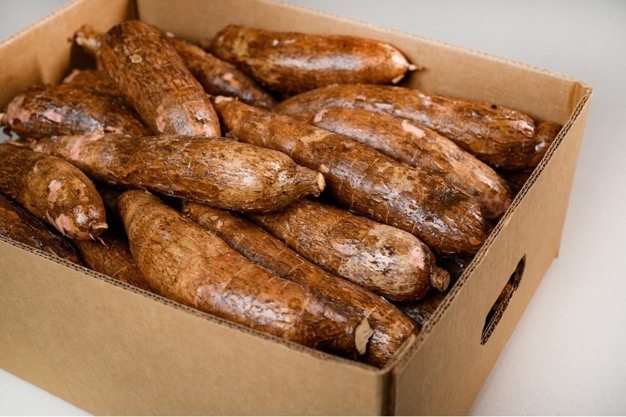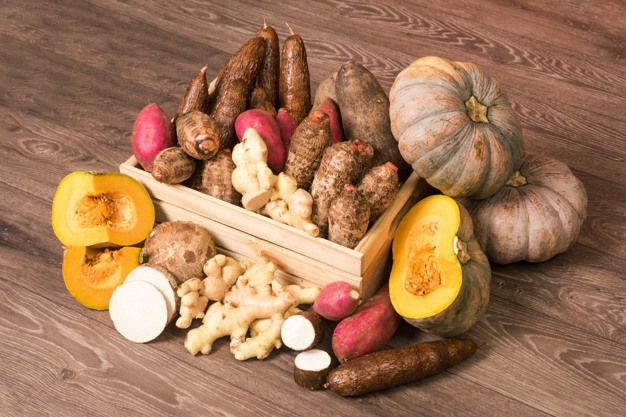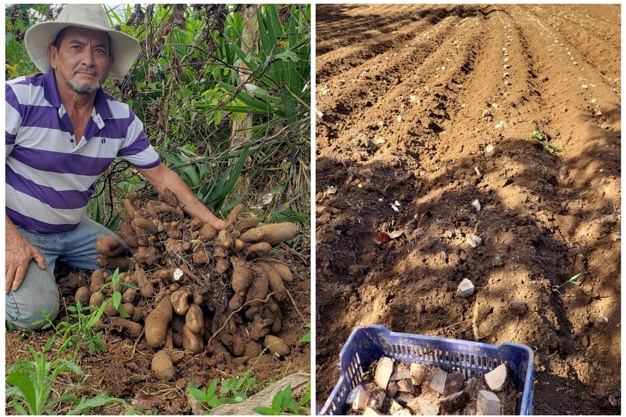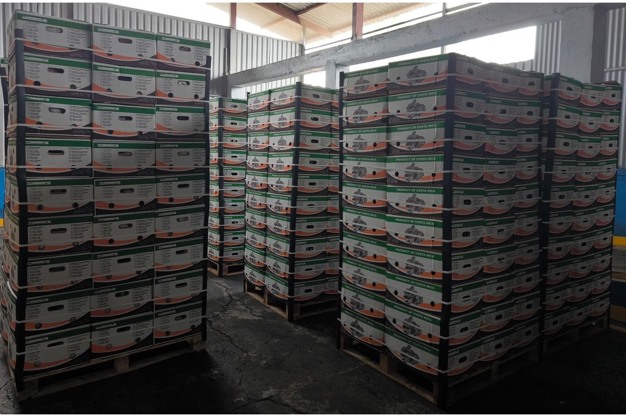Costa Rican cassava has become a key product in international trade, bringing the country's agricultural tradition to markets such as the United States and Europe.
"Costa Rica remains the number one exporter of edible cassava. Our weather allows a constant, year-round production, and the quality of the soil helps us stand out," says Ailyn Vega, director of CR Farm Products.

"Despite weather-related challenges, such as unusual rainfall in 2024, we are keeping our production stable thanks to our ability to diversify our growing locations. We are thus able to supply the product all year round," says Vega.
Although cassava is its flagship product, CR Farm Products exports a wide range of other products, such as eddo, malanga, ginger, yam and carrot. This strategy allows it to meet the needs of diverse markets and deliver mixed containers to its customers.

The United States, with its growing Latino population, remains its main export destination, but cassava consumption has increased significantly in Europe, driven by a preference for gluten-free foods and ethnic products. "We have seen an increase in interest in cassava in countries such as the United Kingdom and France, especially in formats such as flours and snacks," says Vega.
The company mainly exports two varieties: Valencia cassava, intended for the European market, characterized by its white pulp and smooth texture, and Señorita cassava, mainly shipped to Miami.
As far as prices are concerned, Vega says: "Increases have been observed over the last three months, linked to factors such as the supply, demand and weather conditions affecting the production."

"After the pandemic, freight costs increased considerably and there was a more limited availability of cargo space in shipping lines. Although prices and logistics are recovering some stability, they remain a challenge, especially in high demand seasons," says Vega.
In 2024, the company exported approximately 100 containers of its products, and the goal for 2025 is to expand its production and explore additional markets. "We are looking into projects for the production of processed cassava chips. We are also actively participating in international fairs through Procomer, promoting its products and strengthening trade relations," says Vega.

"Our commitment shows in the positive impact on Costa Rican communities. We collaborate with local and indigenous farmers and organize support programs for schools and churches. Every cassava root that reaches the consumer has a backstory of effort and dedication. We value the work invested in each harvest and strive to support those who make it possible," says Vega.
For more information:
Ailyn Vega
CR Farm Products
San Carlo de Alajuela
Costa Rica
Tel.: +506 6314 1562
[email protected]
www.crfarmproducts.com
Luis A. Garcia
CR Farm Products
Costa Rica
Tel.: +506 6314 1562
[email protected]
www.crfarmproducts.com
